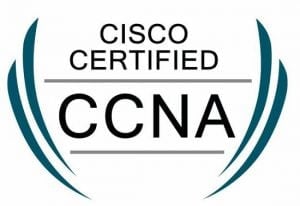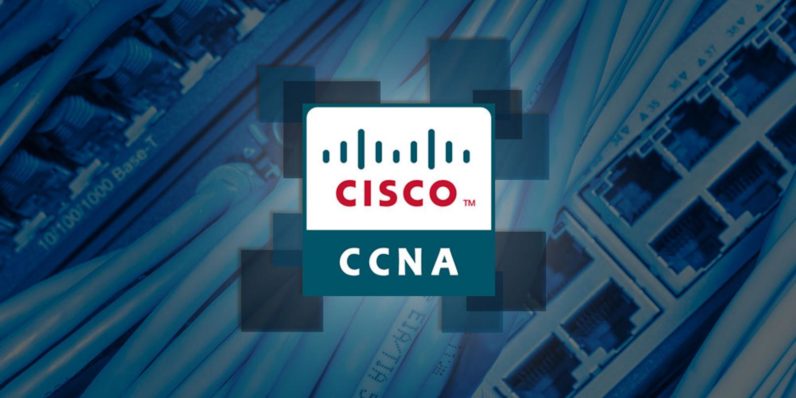Cisco Certified Network Associate is known as CCNA in short. CCNA is an IT network certification course which is granted by Cisco. It is a program that is valid for all types of engineers.
CCNA is considered to be one of the most in-demand certification courses preferred by computer network engineers. CCNA is capable of assisting to get ready for the latest and most modern technologies.
How Long Is CCNA Certificate Valid For?
CCNA certifications are valid for three years once you pass the exam. In order to recertify, one should pass one of the following before the expireation:
- Pass the current ICND2 (Interconnecting Cisco Networking Devices Part 2) exam
- Pass any current CCNA Concentration exam
- This exam can be wireless or security or voice or SP Ops
What Are The Types of Cisco Certification?
Cisco Certifications have been explained in detail below:
CCNA Routing and Switching
In the modern IT world, it is mandatory that the skills and techniques of a network engineer are growing great and the network professionals need to keep their expertise up with the fast pace of advancement.
CCNA Routing and Switching acts like the basement of Cisco Networking and is also capable of preparing an individual with a relevant skillset which is preferred to be used in the next generation of technologies.
To gain CCNA R&S Certification, one must pass the following exams:
- CCNA Composite
- #200 – 125 CCNA
- ICND1 and ICND2
- #100 – 105 ICND1
- #200 – 105 ICND2
CCNA Security
CCNA Security Certification is able to recognize associate-level networking experts that are capable of securing a small enterprise network. These experts would be more than capable of implementing a security infrastructure, identify the network threats and solve them.
With CCNA Security Certification, networking professionals would have deep skills and sufficient knowledge which is required to install, troubleshoot and monitor the network along with its security devices. This all while monitoring the network and security devices while taking the quality of availability, integrity, and confidentiality of the data and the network.
To gain CCNA Security Certification, one must pass the following exam:
- Implementing Cisco Network Security (IINS)
CCNA Wireless
The world is depending on wireless technology in every field. Hence, it is of no surprise to see that the demand for Cisco Wireless Professionals has hit the roof as well. CCNA Wireless Certification is an associate-level certification. It validates the skillset and available knowledge of an individual to support a Cisco wireless LAN.
To gain CCNA Wireless Certification, one must pass the following exam:
- Implementing Cisco Wireless Network Fundamentals (WIFUND)
CCNA Cloud
Cisco CCNA Cloud Certification makes the skillset of professionals of Cloud technology visible. Meanwhile, it also validates the potential of the individuals to develop, advance and give a hand to the cloud of the organization.
CCNA Cloud Certification helos the Cloud engineers, administrators, and Network Engineers so that the individuals have the potential to support Cisco Cloud Solutions and meet the changing demands of the IT.
To gain CCNA Cloud Certification, one must pass the following exams:
- Understanding Cisco Cloud Fundamentals (CLDFND)
- Introducing the Cisco Cloud Administration (CLDADM)
CCNA Service Provider
CCNA Service Provider is capable of recognizing the skillset of network engineers along with technicians and designers so that the foundation of Cisco Service Provider Next-Generation networks can be configured, implemented, and troubleshoot whenever needed.
This certificate validates your capability to implement, troubleshoot, and support network infrastructures and Next-Generation Service Provider networks.
To gain CCNA Service Provider Certification, one must pass the following exams:
- Building Cisco Service Provider Next-Generation Networks, Part 1 (SPNG1)
- Building Cisco Service Provider Next-Generation Networks, Part 2 (SPNG2)
CCNA Data Center
Data Centers are changing or shifting from database-centric places to automation, cloud, software-defined technologies. Virtualization is also a possibility. With massive application deployment, the data center is considered to be the center of the digital era.
CCNA Data Center assists you in gaining the necessary infrastructure, concepts, and technology. Also, it validates you in installation, configuration and maintaining of data center technology.
To gain the CCNA Data Center Certification, one must pass the following exams:
- Introducing Cisco Data Center Networking (DCICN)
- Introducing Cisco Data Center Networking Technologies (DCICT)
CCNA Collaboration
CCNA Collaboration Certification expresses the knowledge and skills of voice and video network engineers so that an enterprise network can be configured and supported. This certification assists the video engineers, collaboration engineers, voice engineers, IP telephony and IP network engineers. All this to enhance and develop collaboration and video skills for voice, video, and mobile applications.
To gain the CCNA Collaboration Certification, one must pass the following exams:
- Implementing Cisco Collaboration Devices (CICD)
- Implement Cisco Video Network Devices, Part 1 (CIVND1)
- Implement Cisco Video Network Devices, Part 2 (CIVND2)
CCNA Industrial
CCNA Industrial Certification ensures that best practices required to connected networks of modern days are utilized.
This certification helps, with lab practice, in assisting the professionals to spread their knowledge around the real world. This helps in ensuring the adrenaline in the present infrastructure while aiming for adaptability.
To gain the CCNA Industrial Certification, one must pass the exam for managing industrial issues.
CCNA Cyber Ops
The CCNA Cyber Ops is almost the opposite of CCNA Security. This certification targets assisting the security teams who perform at Security Operation Centers (SOC). This all by giving them a better understanding of Cyber Threats. This certification allows candidates to prepare for associate-level cybersecurity profiles.
To gain the CCNA Cyber Ops certification, one must pass the following exams:
- Understanding Cisco Cyber Security Fundamentals (SECFND) v1.0
- Implementing Cisco Cyber Security Operations (SECOPS) v1.0
CCDA (Cisco Certified Design Associate)
CCDA is the Cisco Certification, associate level, that is able to recognize professionals that can design an enterprise network without compromising with performance, availability, scalability, and flexibility. This certification validates the updated network designing skills and the candidates’ proficiency.
To gain the CCDA Certification, one must pass the following exams:
- Designing for Cisco Internetwork Solutions (DESGN)
Get updated with informative IT blogs with Broadwayinfosys and satisfy your queries on all courses and training details.







